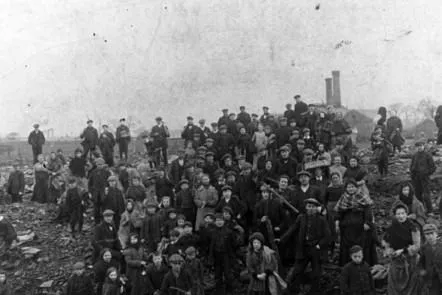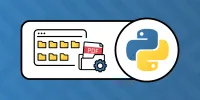
Coal Mining and Industrial Heritage Course - FutureLearn 
This online course provides an opportunity to explore the 19th century coal mining industry, including mining labour and hardship, industrial heritage, and history. Gain a deeper understanding of this important part of our past with Coal Mining and Industrial Heritage on FutureLearn. ▼
ADVERTISEMENT
Course Feature
![]() Cost:
Cost:
Free
![]() Provider:
Provider:
Futurelearn
![]() Certificate:
Certificate:
No Information
![]() Language:
Language:
English
![]() Start Date:
Start Date:
Self Paced
Course Overview
❗The content presented here is sourced directly from Futurelearn platform. For comprehensive course details, including enrollment information, simply click on the 'Go to class' link on our website.
Updated in [March 06th, 2023]
This Coal Mining and Industrial Heritage Course from FutureLearn provides an overview of the history of coal mining and its impact on the industrial revolution. Participants will explore the development of coal mining in the UK, the industrial revolution, and the impact of coal mining on the environment. They will also learn about the social and economic effects of coal mining, and the legacy of coal mining in the UK. The course will also cover the current state of coal mining in the UK, and the challenges facing the industry. Participants will gain an understanding of the importance of coal mining in the UK and its impact on the environment, society, and economy.
[Applications]
Upon completion of this Coal Mining and Industrial Heritage Course, learners can apply their knowledge to explore the history of coal mining and industrial heritage in their own communities. They can also use the skills they have acquired to create educational materials and activities to share with others. Additionally, learners can use the knowledge they have gained to advocate for the preservation of coal mining and industrial heritage sites.
[Career Paths]
1. Coal Mining Engineer: Coal mining engineers are responsible for the safe and efficient extraction of coal from underground mines. They use a variety of technologies and techniques to ensure that the coal is extracted safely and efficiently. As the demand for coal increases, the need for qualified coal mining engineers is expected to grow.
2. Industrial Heritage Manager: Industrial heritage managers are responsible for preserving and protecting the industrial heritage of a region. They work to ensure that the industrial heritage of a region is preserved and protected for future generations. They also work to promote the industrial heritage of a region to the public.
3. Environmental Engineer: Environmental engineers are responsible for designing and implementing solutions to environmental problems. They use a variety of technologies and techniques to ensure that the environment is protected and preserved. As the demand for environmental protection increases, the need for qualified environmental engineers is expected to grow.
4. Renewable Energy Engineer: Renewable energy engineers are responsible for designing and implementing renewable energy solutions. They use a variety of technologies and techniques to ensure that renewable energy sources are used efficiently and effectively. As the demand for renewable energy increases, the need for qualified renewable energy engineers is expected to grow.
[Education Paths]
1. Mining Engineering: Mining engineering is a field of engineering that focuses on the safe and efficient extraction of minerals from the earth. It involves the design, construction, and operation of mines, as well as the development of new technologies and processes to improve safety and efficiency. Mining engineering is a rapidly growing field, with new technologies and processes being developed to improve safety and efficiency.
2. Environmental Engineering: Environmental engineering is a field of engineering that focuses on the protection and preservation of the environment. It involves the design, construction, and operation of systems to reduce pollution, conserve resources, and protect ecosystems. Environmental engineering is a rapidly growing field, with new technologies and processes being developed to reduce pollution and conserve resources.
3. Industrial Engineering: Industrial engineering is a field of engineering that focuses on the optimization of processes and systems. It involves the design, construction, and operation of systems to improve efficiency and reduce costs. Industrial engineering is a rapidly growing field, with new technologies and processes being developed to improve efficiency and reduce costs.
4. Civil Engineering: Civil engineering is a field of engineering that focuses on the design, construction, and operation of infrastructure. It involves the design, construction, and operation of roads, bridges, buildings, and other structures. Civil engineering is a rapidly growing field, with new technologies and processes being developed to improve safety and efficiency.
Course Provider

Provider Futurelearn's Stats at AZClass
This online course offers an opportunity to explore the 19th century coal mining industry, including mining labor and hardship, industrial heritage, and history. Gain a deeper understanding of this important part of their past with Coal Mining and Industrial Heritage on FutureLearn. This Coal Mining and Industrial Heritage course from FutureLearn is an excellent way to learn about the history of coal mining and industrial sites. Learners will understand the importance of coal mining and industrial heritage, and its impact on the environment and society. The course also provides an overview of the current state of the industry and the challenges it faces.
Discussion and Reviews
0.0 (Based on 0 reviews)
Explore Similar Online Courses

PDF Management in Python

Save time learn How to Setup a localhost machine in minutes

Python for Informatics: Exploring Information

Social Network Analysis

Introduction to Systematic Review and Meta-Analysis

The Analytics Edge

DCO042 - Python For Informatics

Causal Diagrams: Draw Your Assumptions Before Your Conclusions

Whole genome sequencing of bacterial genomes - tools and applications

Curanderismo: Traditional Healing Using Plants

Storytelling in Branding and Content Marketing


Start your review of Coal Mining and Industrial Heritage Course - FutureLearn